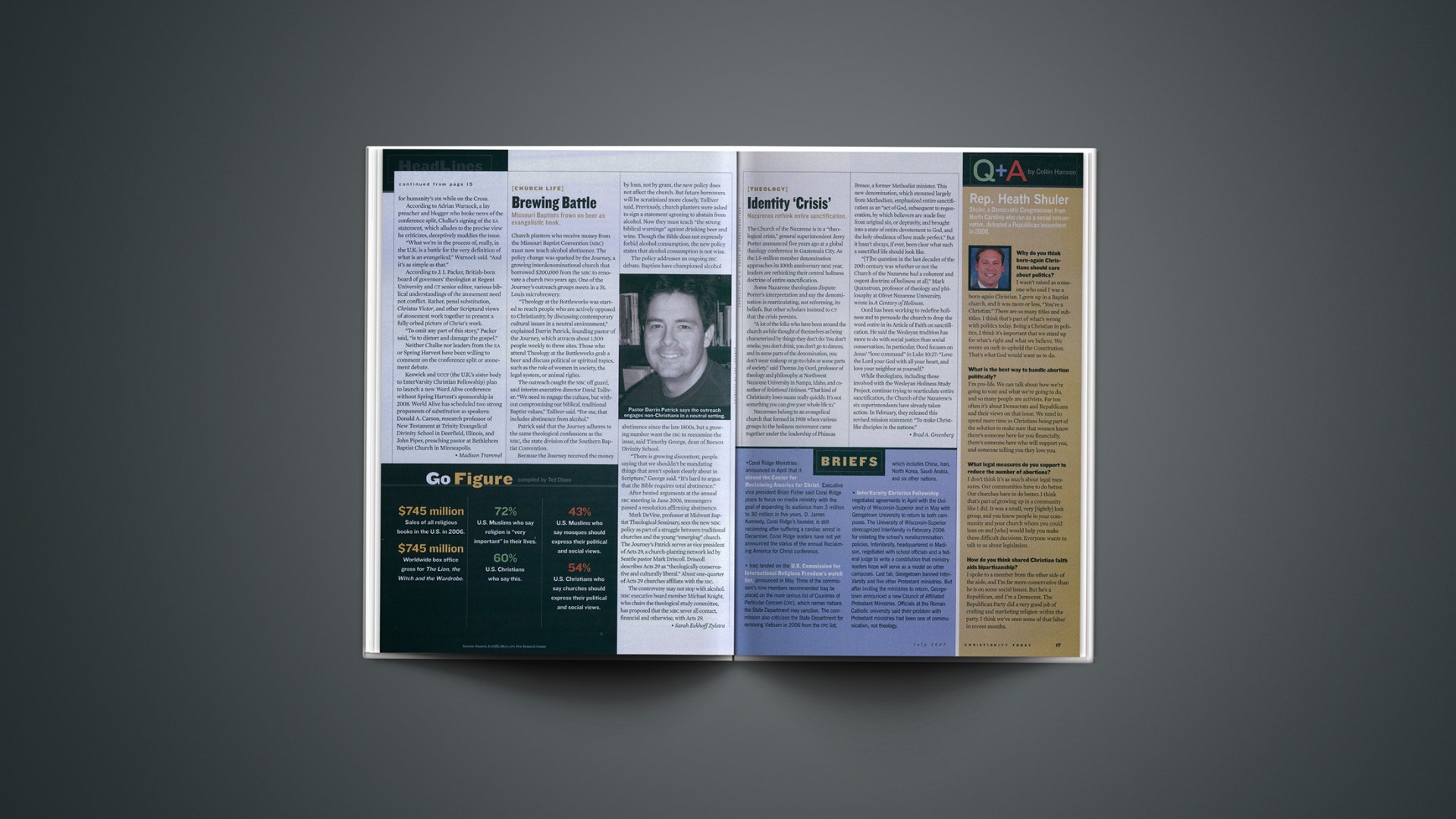The Church of the Nazarene is in a “theological crisis,” general superintendent Jerry Porter announced five years ago at a global theology conference in Guatemala City. As the 1.5-million member denomination approaches its 100th anniversary next year, leaders are rethinking their central holiness doctrine of entire sanctification.
Some Nazarene theologians dispute Porter’s interpretation and say the denomination is rearticulating, not reforming, its beliefs. But other scholars insisted to ct that the crisis persists.
“A lot of the folks who have been around the church awhile thought of themselves as being characterized by things they don’t do: You don’t smoke, you don’t drink, you don’t go to dances, and in some parts of the denomination, you don’t wear makeup or go to clubs or some parts of society,” said Thomas Jay Oord, professor of theology and philosophy at Northwest Nazarene University in Nampa, Idaho, and co-author of Relational Holiness. “That kind of Christianity loses steam really quickly. It’s not something you can give your whole life to.”
Nazarenes belong to an evangelical church that formed in 1908 when various groups in the holiness movement came together under the leadership of Phineas Bresee, a former Methodist minister. This new denomination, which stemmed largely from Methodism, emphasized entire sanctification as an “act of God, subsequent to regeneration, by which believers are made free from original sin, or depravity, and brought into a state of entire devotement to God, and the holy obedience of love made perfect.” But it hasn’t always, if ever, been clear what such a sanctified life should look like.
“[T]he question in the last decades of the 20th century was whether or not the Church of the Nazarene had a coherent and cogent doctrine of holiness at all,” Mark Quanstrom, professor of theology and philosophy at Olivet Nazarene University, wrote in A Century of Holiness.
Oord has been working to redefine holiness and to persuade the church to drop the word entire in its Article of Faith on sanctification. He said the Wesleyan tradition has more to do with social justice than social conservatism. In particular, Oord focuses on Jesus’ “love command” in Luke 10:27: “Love the Lord your God with all your heart, and love your neighbor as yourself.”
While theologians, including those involved with the Wesleyan Holiness Study Project, continue trying to rearticulate entire sanctification, the Church of the Nazarene’s six superintendents have already taken action. In February, they released this revised mission statement: “To make Christ-like disciples in the nations.”
Copyright © 2007 Christianity Today. Click for reprint information.
Related Elsewhere:
The Church of the Nazarene‘s articles of faith include a short explanation of the doctrine of entire sanctification.
The general superintendents emphasize that holiness is Christlikeness in the Church of the Nazarene’s section on their new mission statement.
Thomas Jay Oord delivered “Fifteen Changes in the Church of the Nazarene’s Article on Entire Sanctification” at a 2006 “Revisioning Holiness” conference.
Documents and sound files from the February conference on “Revisioning Holiness: Looking Back and Pressing Forward” are available from the Wesley Center Online.
Rob Staples describes the problem of Nazarene identity and says that “It is time for the Church of the Nazarene to finally admit … that in the issue of equating Pentecost solely with entire sanctification, along with a few other issues as well, the American holiness movement got it wrong” in “Things Shakeable and Things Unshakeable In Holiness Theology.”
Holiness Today published an op-ed about the teaching of entire sanctification in Nazarene churches.










